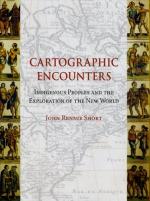|
This section contains 8,746 words (approx. 30 pages at 300 words per page) |

|
Exploration and settlement of the New World (the European term for North and South America) began in the late fifteenth century as a direct result of events in Europe, the Middle East, and Africa. One of the most significant influences was the Crusades (1095–1291), a failed Christian movement to recapture the Holy Land (a region in the Middle East comprising parts of modern Israel, Jordan, and Egypt; today known as Palestine) from the Muslims (followers of the Islamic religion). During four hundred years of interaction with Middle Eastern cultures, Europeans discovered the learning of the Muslims, which enabled them to make significant advances in exploration. For instance, they drafted more accurate maps of the known world, built swifter ships, and charted sea routes by observing the position of the Sun. Another important development was the introduction of luxury goods, such as silks and...
|
This section contains 8,746 words (approx. 30 pages at 300 words per page) |

|


